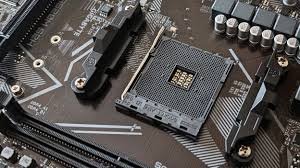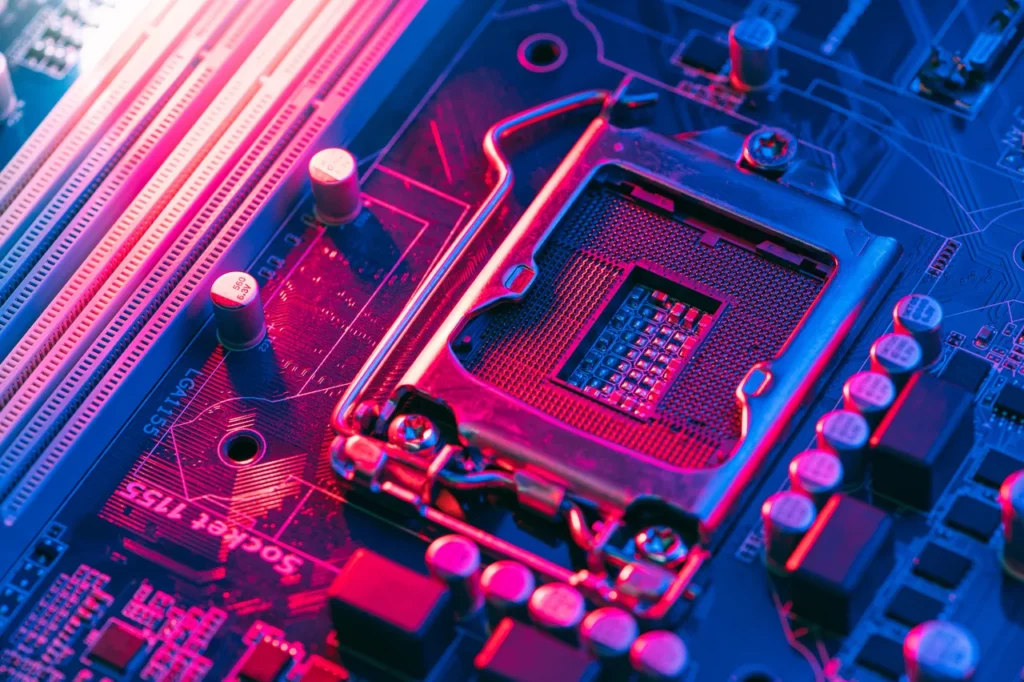No, motherboards do not typically come with Windows pre-installed. Users need to acquire the operating system separately.
This guide aims to unravel this misconception, shed light on the relationship between motherboards and operating systems, and offer clarity for users navigating the complexities of PC building.
Table of Contents
Introduction:
The realm of computer hardware is rife with misunderstandings, with a common misconception revolving around whether motherboards are shipped with Windows already installed. This prevalent belief often leads to confusion among users navigating the intricacies of PC building.
However, it’s essential to clarify that motherboards are standalone components and do not include pre-installed operating systems like Windows. Understanding this distinction is crucial for informed decision-making when assembling a computer system.
Understanding Motherboards and Operating Systems:

To grasp the truth behind the question, it’s crucial to understand the roles of motherboards and operating systems. Motherboards serve as the backbone of a computer, providing connectivity for essential components like the CPU, RAM, and storage devices.
On the other hand, operating systems like Windows facilitate communication between hardware components and enable users to interact with their computers through graphical interfaces.
The Myth of Pre-Installed Windows:
Contrary to popular belief, motherboards do not come with Windows pre-installed. While some pre-built computers or laptops may include Windows as part of the package, this is typically arranged by the computer manufacturer, not the motherboard manufacturer.
Motherboard manufacturers focus solely on producing hardware components and do not bundle operating systems with their products.
Factors Contributing to the Misconception:
Several factors contribute to the perpetuation of the myth that motherboards come with Windows. One reason is the association of Windows with computers, leading to the assumption that all computer-related components, including motherboards, would include the operating system.
Additionally, the prevalence of pre-built systems that come with Windows may lead users to assume the same for individual hardware components.
Also Read: Motherboard Wifi Antenna Not Working – A Comprehensive Guide In 2024!
Clarifying the Reality:
When users opt to buy a standalone motherboard, it’s important to understand that Windows isn’t typically included. Rather, they’re obtaining a foundational hardware piece essential for computer functionality.
Any operating system, such as Windows, must be procured separately, either through purchase or licensing arrangements. This clear distinction underscores the necessity for users to separately acquire the operating system of their choice when assembling a computer system.
Navigating the PC Building Process:
For users embarking on a DIY PC building journey, understanding the distinction between hardware components and software platforms is essential. While motherboards play a critical role in assembling a computer, they do not dictate the choice of operating system.
Users have the flexibility to select the operating system that best suits their needs, whether it’s Windows, Linux, or another option.
Factors to Consider When Choosing an Operating System:
- Compatibility: Ensure that the chosen operating system is compatible with the motherboard and other hardware components.
- User Preference: Consider factors such as familiarity, software compatibility, and personal preference when selecting an operating system.
- Licensing: Understand the licensing terms and costs associated with different operating systems, including Windows.
Guidance for Users:

To ensure a smooth PC building experience, users should plan to obtain an operating system separately when purchasing a motherboard.
Whether through retail purchase, licensing agreements, or free alternatives, acquiring the desired operating system is a necessary step in completing the PC setup.
FAQ’s
1. Do motherboards include Windows?
No, motherboards are hardware components and do not come with pre-installed operating systems like Windows.
2. Can I expect Windows to be included when purchasing a motherboard?
No, Windows is not included with motherboards. It needs to be obtained separately.
3. Why do some people think motherboards come with Windows?
There’s a misconception due to the association of Windows with computers, but motherboards are standalone hardware.
4. Do motherboard manufacturers provide Windows with their products?
No, motherboard manufacturers focus solely on producing hardware components and do not bundle operating systems.
5. Where can I get Windows for my computer?
Windows can be obtained separately through retail purchase or licensing agreements.
6. Can I choose a different operating system for my computer?
Yes, users have the flexibility to select operating systems like Linux or others based on their preferences.
7. What factors should I consider when selecting an operating system?
Compatibility with the motherboard and other hardware components, user preference, and licensing terms.
8. How can I ensure a smooth PC building experience?
Plan to acquire an operating system separately when purchasing a motherboard.
9. Is it necessary to understand the distinction between hardware components and software platforms?
Yes, understanding this distinction is crucial for informed decision-making in PC building.
10. What are the options for obtaining an operating system?
Operating systems can be obtained through retail purchase, licensing agreements, or free alternatives.
11. Should I expect Windows to be included in a DIY PC building kit?
No, DIY PC building kits typically include hardware components only, not operating systems.
12. Can I install Windows without purchasing it?
No, Windows requires a valid license for installation, which can be obtained through purchase or licensing agreements.
Conclusion
In conclusion, the myth that motherboards come with Windows pre-installed is just that – a myth. Understanding the distinction between hardware components like motherboards and software platforms like operating systems is crucial for navigating the complexities of PC building. By debunking misconceptions and providing clarity on this topic, users can approach the PC building process with confidence and informed decision-making.